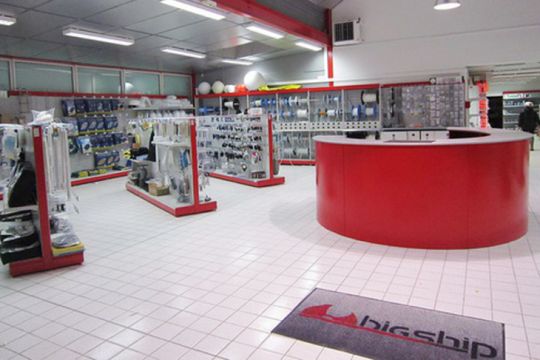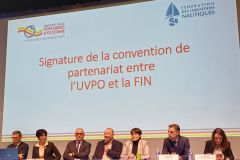A new nautical collective agreement to replace a 1979 text
For Yves-Lyon Caen, President of the Fédération des Industries Nautiques (FIN), the signing of the new collective agreement for the nautical industries and services "comes to defeat a fatality". Indeed, the collective agreement of the sector dating from 1979 had been the subject of 2 abortive attempts to update it since the beginning of the 2000s. Negotiations between the social partners started in 2018, finally led to an agreement between the FIN for the employers and the FCE-CFDT and CFE CGC trade unions on the other hand.
An updated text
While the richness of a collective agreement does not allow all its points to be summarized in a few lines, Gérard Lachkar, in charge of negotiations for the FIN, highlights some of the major aspects of the text's renovation, which were sometimes absent from the debate in the 1980s, and cites: "the increase in the rate of employer's contribution to social dialogue, professional equality between men and women, improvement of trial periods for the well-being of employees, the employment contract, overtime to comply with company requests and the application of the 39-hour working week, the time savings account..."

For Thierry Gontier, Federal Secretary FCTC, the convention is a new text that does not deny its roots. "After the labour code, the convention is a minimum set of rights for employees, particularly in SMEs. Even if sometimes, the balance of power is still necessary."
Reaching more companies in the nautical sector
Initially concerning FIN members, the new collective bargaining agreement should cover all companies whose NAF code corresponds to the professions covered by the text by the end of 2020, once its extension has been validated by the authorities. Some yachting companies now operate under different NAF codes, for historical reasons such as their ties to the metal industry. "Some are not even aware of this. We have members who are not in the convention's NAF codes. It's up to us to get them to join us, to help them in this respect and to show them the interest," explains Yves Lyon-Caen. The FIN estimates that 80% of the member companies whose current NAF code falls within the scope of the new collective agreement are members.
Teleworking, APLD... Many more topics on the table
In order to reach an agreement, several aspects of the negotiations were pushed out of the collective agreement discussions. "We will continue to be vigilant, particularly on telework and other issues. Unfortunately, the collective agreement does not include all the parties that we would have liked to see," emphasizes André Legault of the CFE-CGC. Agreements on night work, team work or the site contract have been excluded from the collective agreement. "It's easier to go back on an agreement than on a contract," says the FIN negotiator.

Very present in the context of the Covid-19 crisis, the Long-Term Partial Activity Process (LPPD) will be the subject of rapid negotiations at branch level. The FIN estimates that there are about ten companies in the yachting industry where discussions on an LPA are underway, mainly companies with several hundred employees. "Companies with 5 to 25 employees do not have the legal infrastructure for a company-wide agreement, but some will need the APLD. This is the right timing to work at the branch level," says Yves Lyon-Caen.
Keeping the specificity of the sector
In a broader and more political perspective, the social partners reiterated their attachment to the collective agreement for the sector. Faced with the government's desire to reduce the number of branches by merging them, the chairman of the FIN referred to "respect for a branch and the vitality of its social dialogue", while denying that he had relaunched negotiations to avoid a merger.















